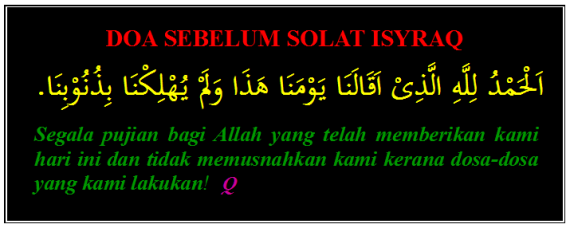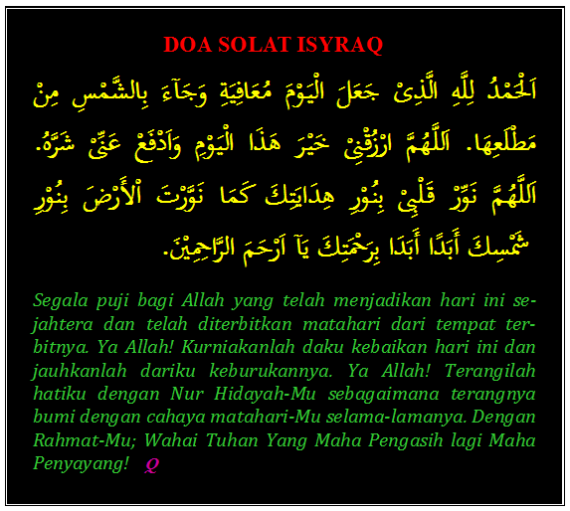Verses of Holy Qur’an Heal and the Wisdom is to Ask
Healing in the Qur’an and Sunnah, Volume 1
Mawlana Shaykh Hisham Kabbani
22 December 2012 Fenton Zawiya, Michigan
A`oodhu billahi min ash-Shaytaani 'r-rajeem. Bismillahi 'r-Rahmaani 'r-Raheem.
Nawaytu 'l-arba`een, nawaytu 'l-`itikaaf, nawaytu 'l-khalwah, nawaytu 'l-`uzlah,
nawaytu 'r-riyaadah, nawaytu 's-sulook, lillahi ta`alaa fee haadha 'l-masjid.
Dastoor yaa Sayyidee, madad.
Every
one of us around the world, in general, Muslim and non-Muslim, have
something in common: everyone is trying to eliminate as much as possible
from this problem that is facing everyone, that comes on all of us
without distinguishing the child, adult, young and old, at any time in
our lives. People only have a basic understanding that this is a common
issue, but they cannot determine when it comes and when it goes. When it
comes, it comes suddenly and when it goes, it goes slowly and then
disappears. So all people share this issue of sickness, from the time of
Sayyidina Adam (a) up to today and until Judgment Day.
Sickness
hits everyone; there is not a single person safe from either physical
or spiritual sickness and both require an expert to eliminate it from
the person under its influence, who tries to lower it as much as
possible. Many people recover from physical sickness and some might not
recover. Similarly, regarding spiritual sickness that concerns the soul,
some people might recover from it and some might not.
Which
is more difficult, physical sickness or spiritual sickness? Spiritual
sickness is more difficult to treat and not everyone can be cured from
it. On the other hand, physical sickness might look more difficult and
in reality many get cured from it, although some cannot. So in that
case, for physical sickness people must go to a wise person, if you want
to call him a doctor, and for spiritual sickness you might call him a
guide, in order to try to eliminate as much as possible.
If
someone comes to you with his story about his sickness, what do you
want to do? For us and most people, they don't go that route, they go a
different route, but really if we are mu’min and
believe in Allah (swt) and His Prophet (s) we go the route that Holy
Qur'an and the hadith of the Prophet (s) has encouraged us.
The Prophet (s) said:
ما أنزل اللهُ مِنْ داءٍ إلا أَنْزَلَ لَهُ شِفَاءً
Maa anzal-Allahu min daa'in illa anzala lahu shifaa’an.
Allah did not send a sickness except He sent with it a cure. (Abu Hurayrah in Sahih Bukhari)
So
if we believe in that, then the responsibility of curing is with the
One Who Cures, which is Allah (swt). So Allah (swt) will send you a cure
if you really believe in what He or the Prophet (s) said, and the
Prophet (s) said, “Allah did not send a sickness except He sent with it a
cure.”
And Allah (swt) said in the Holy Qur'an:
يَا
أَيُّهَا النَّاسُ قَدْ جَاءتْكُم مَّوْعِظَةٌ مِّن رَّبِّكُمْ وَشِفَاء
لِّمَا فِي الصُّدُورِ وَهُدًى وَرَحْمَةٌ لِّلْمُؤْمِنِينَ
Yaa ayyuha an-naasu qad ja’atkum maw`izhatun min rabbikum wa shifaa’un limaa fi ’s-sudoori wa hudan wa rahmatun li ‘l-mu’mineen.
O
Mankind! There has come to you a guidance from your Lord and a healing
for (the diseases) in your hearts, and for those who believe a guidance
and a mercy. (Surah Yunus, 10:57)
Allah
(swt) said “humanity,” not only Muslims. “We sent realities and verses
from Holy Qur'an,” which might be from any verse of Holy Qur'an there is
a secret, because He didn't say, “We send from some aayaat of Holy Qur'an,” but rather, “min al-qur’an,
from the entire Holy Qur'an,” what is a cure for people, so that is in
general. So for an expert--one whose heart and mind Allah opened and
connected him to his guide, and from his guide to the Prophet (s), and from Prophet (s) to Allah--that person will be able to understand the secrets of special aayaat and through reciting them will cure the sick.
From a hadith of `Usama ibn Shareek (r) as reported in Musnad of Imam Ahmad, the Prophet (s) said:
عن ابن مسعود أن النبي صلى الله عليه وسلم قال: ما أنزل الله عز وجل داء إلا أنزل له دواء، علمه من علمه وجهله من جهله.
Inna Allah lam yunazilloo daa'an illa yunazillu bihi shifaa’an. `alimahu man `alimahu wa jahila bihi man jahila.
Allah
did not send down any illness except He sent a cure with it and whoever
knows it knows, and whoever was ignorant remained ignorant of it.
The point of this hadith is `alimahu man `alimahu, “and whoever knows it knows.” The secret of curing illnesses in the Holy Qur’an is not known to everyone, that
is only known to a few people and those few can dive into meanings of
Holy Qur'an and extract ways or verses to treat that person’s specific
sickness. For example, you tell a doctor that you have a headache, he
gives you two tablets and the headache goes, but if you tell the doctor
you have a headache and he gives a cream for your hand, that does not
correspond to the sickness. So there are specific people who can dive
into Holy Qur'an and find secrets in the specific verses to cure you and
your family of illnesses. That is why the Prophet (s) said, “Only some know it and others do not.”
The hadith continues:
إن الله لم يضع داء إلا وضع له شفاء ، أو دواء ، إلا داء واحدا ، قالوا : يا رسول الله ما هو ؟ قال : الهرم
In
Allaha laa yad`a daa’an illa wada`a lahu shifaa (aw dawaa) illa daa'an
waahid. Qaaloo: yaa Rasoolullah maa huwa? Qaala: al-haram.
Treat
the servants of Allah, for verily Allah does not put any illness except
that He put its cure, except (regarding) one sickness. And they asked,
“What is that?” and he (s) said, “al-haram, death. Other than that, Holy
Qur'an can give cure to anyone.”
This
applies to both sicknesses of the soul and the body; the remedy for
both is in Holy Qur'an, but there are conditions: you cannot do what you
want and recite verses as you like and it will be done, as Allah (swt)
said:
فَاسْأَلْ بِهِ خَبِيرًا
Fas’al bihi khabeera.
Ask (from) who is expert. (Surat al-Furqaan, 25:59)
You cannot ask just anyone as not everyone is an expert. You might ask someone and get an answer, but if he is not an expert his answer will not bring a change. Holy Qur'an needs one who is expert in Holy Qur'an, which means those whom Allah protected and called ‘awliyaullah:’
أَلا إِنَّ أَوْلِيَاء اللّهِ لاَ خَوْفٌ عَلَيْهِمْ وَلاَ هُمْ يَحْزَنُونَ الَّذِينَ آمَنُواْ وَكَانُواْ يَتَّقُونَ
Alaa inna awliyaaullaahi laa khawfun `alayhim wa laa hum yahzanoon. Al-ladheena aamanoo wa kaanoo yattaqoon.
Behold!
Verily on the Friends of Allah there is no fear, nor shall they grieve;
they who have attained faith and have always been conscious of Him. (Surah Yunus, 10:62-63)
They fear not because they are given all this knowledge. Another hadith narrated by Abu Dawood (r):
عن جابر بن عبد الله قال
: خرجنا في سفر فأصاب رجلا منا حجر ، فشجه في رأسه ، ثم احتلم ، فسأل
أصحابه فقال : هل تجدون لي رخصة في التيمم ؟ قالوا : ما نجد لك رخصة ، وأنت
تقدر على الماء ، فاغتسل ، فمات ، فلما قدمنا على رسول الله أخبر بذلك ،
فقال : قتلوه قتلهم الله ألا سألوا إذا لم يعلموا ؟ فإنما شفاء العي السؤال
إنما كان يكفيه أن يتيمم ويعصر - أو يعصب - على جرحه خرقة ثم يمسح عليها ،
ويغسل سائر جسده .
We were
traveling in a group and, by mistake, one of us was hit on the head and
received a very severe wound. When that happened, that person
immediately slept. Blood came out and we tried to fix it as much as we
could. That young man slept and when he awoke he needed a ghusl (due to
nocturnal emission). He asked his friends, “Do I have a rukhsa,
permission to make tayammum (with dust or soil) and not with water?” We
said, “No, you cannot, because the bleeding stopped so you cannot make
tayammum, you must make ghusl (shower with water).” So the man took the
shower, prayed, and afterwards he died. When we arrived to the Prophet
(s), we told him what happened and fa qaala an-Nabi (s) qataloohu,
qaatalahumullah, Prophet (s) said we had killed him, and if we didn't
know (what to do) why didn’t we ask the one who knows? And `Ataa said,
“It reached us that the Prophet (s) said, ‘If he had washed his body and
left out the head where the injury afflicted him [it would have
sufficed].’”
So for every spiritual sickness there are spiritual tablets and
for every physical sickness there are special verses from the Holy
Qur’an to cure them. So you must ask the one who knows or otherwise you
are killing the person by giving a recipe or prescription from yourself.
If they didn’t know why didn’t they ask, for verily the cure for the
sickness is one: to ask! You cannot try to cure yourself. Allah (swt)
cures you through His Holy Verses of Holy Qur'an and through Holy Hadith
of the Prophet (s). It was enough to make tayammum,
as the Prophet (s) answered, instead of telling him to take a shower,
which allowed water to enter his wound and caused an inflammation in his
head, which killed him.
They made fatwa without knowledge. What is happening today? They make fatwa without knowledge and cause chaos everywhere, which is a sickness by itself! The Prophet (s) said he was able to make tayammum, to tie his wound with his hand and when it healed he could then use water in wudu. He could have wrapped his wound, place his wet hand on the bandage, that would have been enough for him to pray!
Prophet (s) said:
فأخبر أن الجهل داء ، وأن شفاءه السؤال
Al-jahlu daa'an wa anna shifa'ahu as-suaal.
Ignorance is sickness and the cure is to ask.
So all of us are ignorant and to come out of ignorance is to ask. Allah (swt) said in Holy Qur'an:
اسْأَلُواْ أَهْلَ الذِّكْرِ إِن كُنتُمْ لاَ تَعْلَمُونَ
Fas'al ahl adh-dhikri in kuntum laa ta`lamoon.
Ask the People of Dhikr (Holy Qur’an) if you don't know. (Surat an-Nahl, 16:43)
So
it is always important to ask the right people in order to get the
right cure. All of us have sicknesses. We have physical illnesses and go
to someone who knows and
he gives us an answer, and sometimes we have spiritual sickness that we
need to go to someone else for the cure. Allah (swt) said that Holy
Qur'an contains cure a for human beings, and:
وَنُنَزِّلُ مِنَ الْقُرْآنِ مَا هُوَ شِفَاء وَرَحْمَةٌ لِّلْمُؤْمِنِينَ وَلاَ يَزِيدُ الظَّالِمِينَ إَلاَّ خَسَارًا
Wa nunazzilu mina al-qur’ani ma huwa shifaa’un wa rahmatun lil-mu’mineen wa laa yuzeedu dhaalimeen illa khasaara.
And We sent down in the Qur’an such things that have healing and mercy for the believers.
(Surat al-’Israa, 17:82)
So don’t look right and left (for the cure), but go to those who know. And this hadith is mentioned by Ibn Qayyim al-Jawziyya, a student of Ibn Taymiyya, in his book Madarij as-Salikeen, from Abi Sa`eed. intalaqoo ba`d ashaab an-Nabi (s) fee safarin, “A group
of Companions of the Prophet (s) were travelling.” You know in that
time it was desert, and they travelled and reached an area where there
was water and a date tree, and a small village among the palms. They
asked the Arabs (Bedouins) to host them but they refused, which is not
the custom of Arabs, and while discussing this the leader of the village
was bitten by a scorpion or snake, we don’t know exactly as they didn’t
say. His people tried every possible way to save their leader. You know
the desert scorpion has a poisonous sting and can kill the person
immediately. So they tried everything and couldn’t cure him. Then they
said, “Let us ask these people who just came; maybe they have knowledge or something with them that can cure him.”
They
approached those people and asked, “O people! Our leader has been
bitten. We have tried everything and nothing is working!” So where did
they go? They went to a guide, which means you need a guide. When you
have a sickness or problem or you have to do business, or you have a
question you must go to the one who knows something, not to a charlatan,
who is flashy and just showing off, and who will deviate you! No, we are Ahlu ’s-Sunnah wa ’l-Jama`ah and we follow the Prophet (s), the Sahaabah (r) and the Four Imams, and we don’t accept anyone who deviates from Siraat ul-Mustaqeem! You must get a cure from someone who follows Shari`ah.
And they came to that group of Sahaabah (r) and asked if they have anything to cure their leader. One of them said, w ‘Allahi sa urqii, which is ruqya, to recite verses of the Holy Qur'an, which some Arabs call ‘hijab,’ a veil to protect and save you, and some call ‘taweez,’ which is from Holy Qur'an and it means to seek refuge in Allah from Shaytan. This is proof from hadith of the Prophet (s) for those who say to not believe in them. He said, “W’ Allahi, I
can recite on the man to cure him but I will not, as you refused to
host us. I am not going to recite for you until you give me
compensation. If you had hosted us, we would do it and not take
anything. Now we will do it, but you have to compensate us.”
So the people discussed what they had to give the Sahaabah, who said, “You have to give one qati`a min al-ghanam,
a herd of sheep,” which may have been twenty, thirty or fifty sheep,
Allah knows how many there were. They said, “Okay, no problem, we will
do it.” Then, one Sahaabi (r) recited Surat al-Fatihah, “Bismillahi
‘r-Rahmani ‘r-Raheem. Alhamdullahi Rabbi 'l-`Alameen. Ar-Rahmani
‘r-Raheem. Maalika yawm ad-deen. Iyyaka n`abudu wa iyyaka nasta`een.
Ihdinas siraat al-mustaqeem. sirat al-ladheena an`amta `alayhim ghayri
‘l-maghdoobi `alayhim wa laa dhaalleen. Ameen,” and spat (not blew) on the wound where the leader had been bitten. It
was as if that leader had been tied with a chain that was suddenly
taken away, and he was able to stand up and walk completely with no
pain!
So the village people gave the Sahaabah (r) the herd of sheep. Some Sahaabah said,
“Let us divide the herd among us,” while others said, “No, let us go to
the Prophet (s) and whatever he decides we will do.”
So
they took that herd of sheep to the Prophet (s) and mentioned what had
happened to them. He asked them, “How did you know that was ruqya?
What you did is correct and put a share for me from what you got from
them.” We know it is correct because they spit and recited Surat al-Fatihah on that sickness and Allah cured it.
There is so much explanation here! It means there are ruqyas that
you recite and Allah (swt) will accept, but we will come to that later,
not now. The one reciting must be qualified and the one receiving must
believe the recitation will benefit him, so both sides must have faith.
The one reciting has to know that Allah (swt) will cure but he is doing
what Allah said in Holy Qur'an, “We revealed what is healing to Mankind
and a cure,” and the one on other side must know those are verses from
Holy Qur'an that will cure him.
Therefore, sometimes you see the person is cured and sometimes you do not and that is based on belief. What the Sahaabi recited and spit on the wound corresponded to that particular sickness. It might be you are bit by a scorpion and read Surat al-Fatihah and you are cured, because the medicine for the bite of that creature was Surat al-Fatihah.
However, everything he (the shaykh) recites has different affects and
there are different ways to cure different sicknesses, but that is why
the Prophet (s) said Surat al-Fatihah is
for whatever it is read on. Also, that depends on the one reading: are
they pure and clean, are they a guide, when they breathe, can angels
take their breath to the Divine Presence (i.e. is it pure)? So the
success of that depends on many different elements and principles.
We leave it here and will continue in the evening. It is important for people to learn and understand. This is the beginning of the series on different illnesses and their cures as known in Islamic spirituality.
Bi hurmati 'l-habeeb, bi hurmati 'l-Fatihah.
© Copyright 2012 Sufilive. All rights reserved. This transcript is protected
by international copyright law. Please attribute Sufilive when sharing it. JazakAllahu khayr.
by international copyright law. Please attribute Sufilive when sharing it. JazakAllahu khayr.





